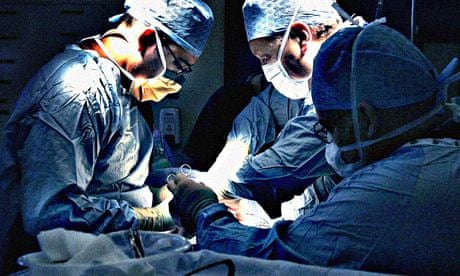At least 1,000 hospital patients in England die each month from avoidable kidney problems, according to a study commissioned by the NHS.
Researchers found that 15,000-40,000 excess deaths every year are caused by acute kidney injury (AKI), which causes a loss of kidney function and can develop very quickly. It can occur in people who are already ill with conditions such as heart failure or diabetes and those admitted to hospital with infections.
AKI can also develop after major surgery, such as some kinds of heart surgery, because the kidneys can be deprived of normal blood flow during the procedure. Severe dehydration is one of the main causes of the condition.
AKI costs the health service more than £1bn every year, according to a study commissioned by NHS Improving Quality.
The research, carried out by kidney disease experts and Insight Health Economics, found that AKI is five times more prevalent in English hospitals than previously thought.
The report's co-author Prof Donal O'Donoghue, consultant renal physician at Salford Royal NHS foundation trust, said: "We know that at least a thousand people a month are dying in hospital from AKI due to poor care.
"These deaths are avoidable. This is completely unacceptable and we can't allow it to continue. Good basic care would save these lives and save millions of pounds for the NHS. Doctors and nurses need to make elementary checks to prevent AKI. In general, people who are having surgery shouldn't be asked to go without water for longer than two hours.
"Sometimes that is unavoidable, but then medical staff need to check their patients are not becoming dehydrated. They also need to be aware that some common medications increase the risk of AKI."
Marion Kerr, health economist at Insight Health Economics, said the £1bn annual cost to the NHS "is more than we spend on breast, lung and bowel cancer combined".
She added: "Every day, more than 30 people are dying needlessly. Compare that to MRSA which was killing about four people a day at its peak. Simple improvements in basic care could save the NHS £200m a year and, more importantly, save thousands of lives."
A spokesman for NHS England said: "We have taken steps to ensure the NHS puts in place coherent long-term plans to reduce avoidable deaths in our hospitals, and to improve the way data is used in decision making.
"Health research based on real life evidence like this is vitally important for NHS commissioners in choosing where to target their resources."

Comments (…)
Sign in or create your Guardian account to join the discussion